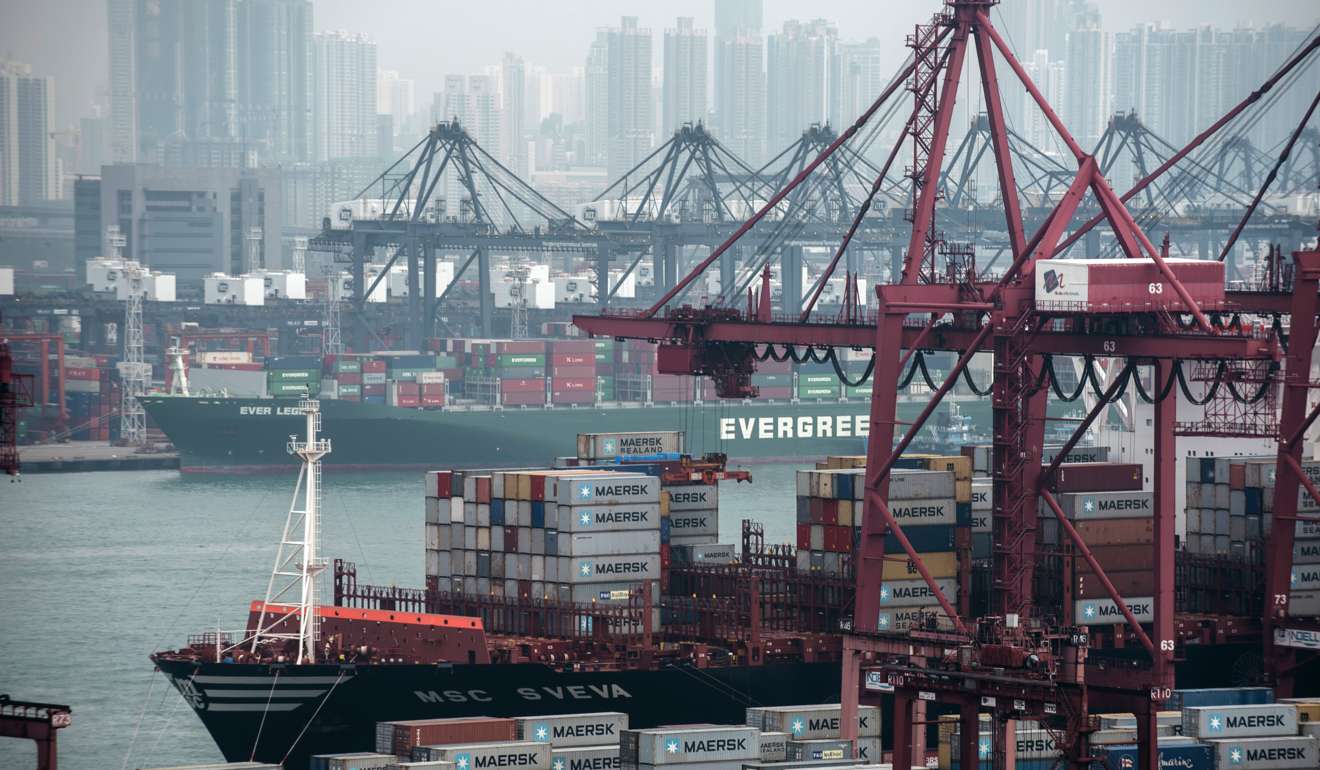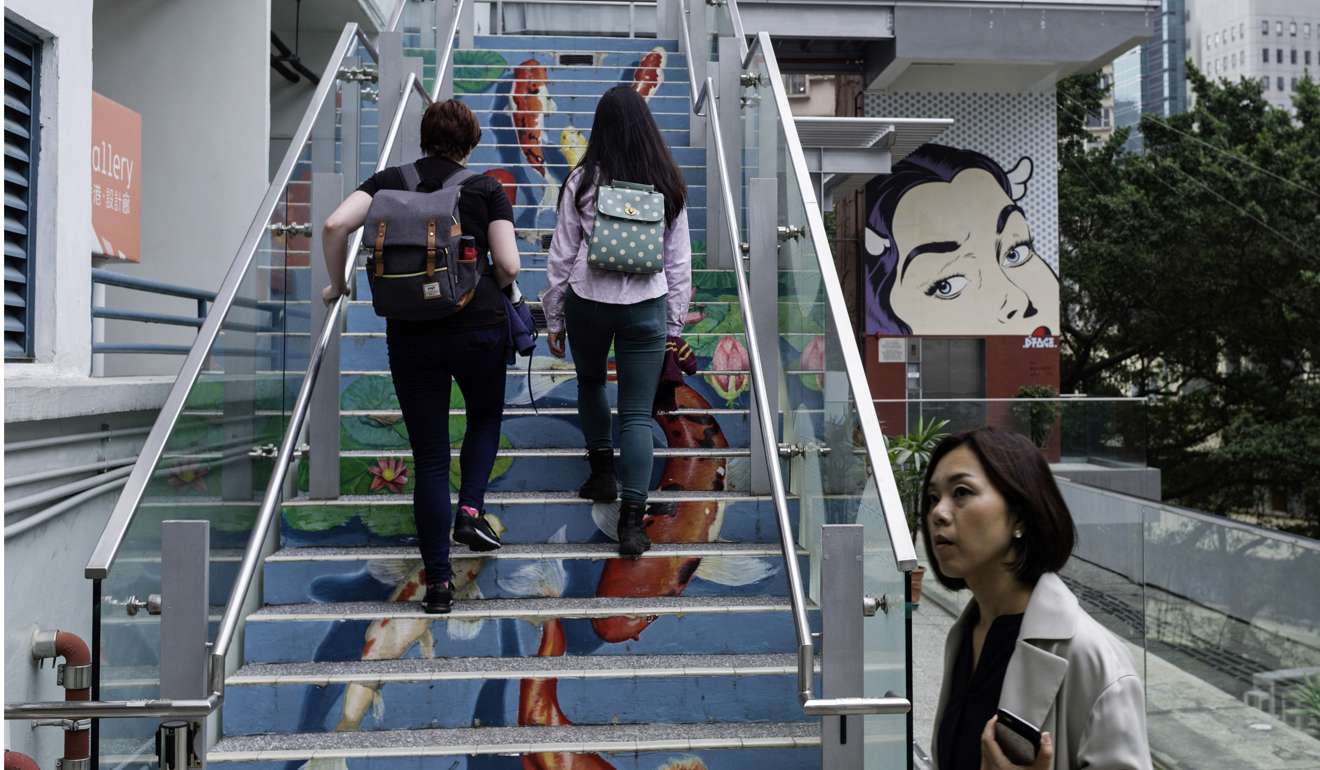
Hong Kong has the money and talent to create the jobs of the future
Andrew Sheng says the city’s business model of relying on logistics, finance and real estate is simply not sustainable in today’s world of radical uncertainty. Hong Kong’s next leader must help rekindle the city’s spirit of self-help
The key question is whether Hong Kong can rely on its traditional strengths of logistics, finance and real estate, each of which is under threat as mainland cities up their ante in scale, speed and quality.

The colonial government understood well that as a city economy, Hong Kong could grow by tapping the resources and energy of its neighbours without high costs of transactions. The principle of positive non-interventionism, ingrained into Hong Kong civil servants, was a practical approach. With limited resources, the city worked well by having a low tax rate and allowing the market to get on with wealth creation.
The frustration of many Hong Kong people is vented through politics, because they think that the ability to cast a vote is the only solution to the city’s many social ills
That Hong Kong piles up these reserves in low-yielding US Treasuries while the young and innovative among us (who have high potential for wealth creation) are crying out for investment indicates a lack of strategic vision. We have been myopic to our own myopia.
Shakespeare famously asked, “What is the city but the people?” A city is a cluster of social networks built on physical networks (infrastructure). Hong Kong has a comparative advantage in its geography, plus superior communications and telecommunications infrastructure. But its real strength is its social networks that allow business and knowledge to flow to and from not only mainland China, but also the business and finance hubs of London and New York, and the neighbouring hubs of finance, culture and technology.
Networks grow when they are open, and decline when they become closed. Closed minds think in terms of either/or; but open minds understand that you grow when your community and neighbourhood grow with you.
Hong Kong’s current financial trajectory is unsustainable because it is funded on the sale of real estate, mispricing both capital and labour. The failure of neo-liberal free market economics and finance, which worshipped and mispriced capital at the expense of labour, was in ignoring the root of social stability – securing decent jobs and affordable housing. As automation becomes cheaper, the “value” of labour has fallen, because jobs can be digitised and robotised, making existing jobs insecure and “degraded”. When the middle class has wages that cannot afford decent housing and feels undervalued and ignored, politics becomes toxic.
When we are at a loss, we must try, because success comes from failing and trying again. That’s the Hong Kong spirit
The knee-jerk political reaction is protectionism and localism. But these emotional responses do not solve the crux of the issue, which is, how do we provide long-term sustainable jobs with vibrant and viable businesses?
Because the bureaucracy understands finance and real estate, but does not comprehend technology, the government keeps on doing more of the same, as if piling up more and more low-yielding fiscal surpluses are symbols of success. It should know that investing in people is the best option to boost innovation and create jobs.
The next Hong Kong administration should adopt a Silicon Valley approach to job creation. Invest in 1,000 start-ups (including those involving obsolete industries), and ask them to propose ideas for creating sustainable jobs. The government should use the market to vet these proposals, rigorously monitoring whether they succeed or fail over time. First, let a thousand flowers bloom (knowing that many will fade), then sift out the impractical ideas and implement the practical ones.
Investing HK$10 million each in 1,000 start-ups would cost a quarter of the HK$40 billion spent on the HK$6,000 freebie given to every permanent resident in 2011. This at least could deepen our social networks and help create the next generation of entrepreneurs.
When we are at a loss, we must try, because success comes from failing and trying again. That’s the Hong Kong spirit.
The mystery of why Hong Kong spends so much but has so few start-ups

The criteria for selecting a job creation project should be purposeful. The project should first and foremost address a social – and not necessarily initially commercial – need. Can the city, for example, undertake a reforestation project or one that cleans up our polluted beaches and seas? Should the city invest in housing renovation, considering that so much is falling apart with age, neglect and congestion?
We could get the community involved, particularly the young, in projects to revitalise and beautify our neighbourhoods, by reducing congestion and pollution and making urban planning more user-friendly. We don’t need to rely on third-party bureaucrats to solve our community problems. We must energise self-help, and the imagination of the young and creative to unleash solutions to our problems.
How good are Hong Kong’s start-up incubators and accelerators?
The frustration of many Hong Kong people is vented through politics, because they think that the ability to cast a vote is the only solution to the city’s many social ills. They need to be otherwise convinced.
What is needed is a clear-sighted appreciation that no individual can solve today’s complex problems. The community needs to engage and talk to each other, rather than across and against each other.
Hong Kong is not a city without financial resources, or human talent. If we think that our young can only be protesters, rather than the creators of our future, then the outcome can only be negative. To be positive, we need leadership, not of any one individual, but of the community itself. The Hong Kong spirit is not dead – it just needs to be rekindled.
Andrew Sheng is a distinguished fellow at the Asia Global Institute, University of Hong Kong. The views expressed here are his own

